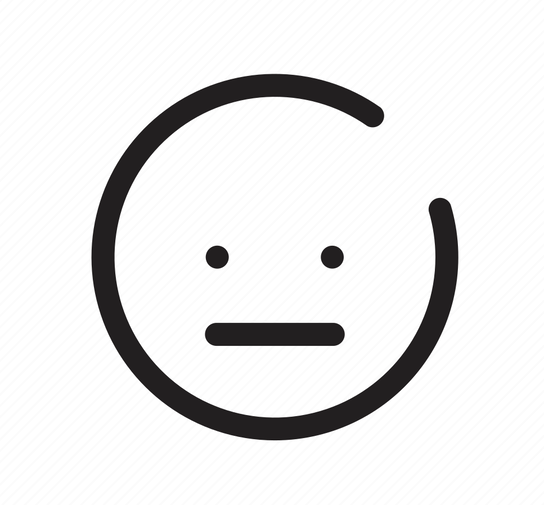The internet is not a real place
but the hate and shame it causes in your life is
Everyday online and on social media, we create the dangerous conditions in the world we then step into
If you're feeling angry and argumentative and you spend more than 30 minutes a day on
X, Instagram, TikTok, Reddit, Facebook, or news stories
Check out how news and social media consumption shapes your day from the start

The Perpetual State of Grievance
1) How long were you awake before your first complaint?
2 How many times have you said "I hate_____" today?
3 How cynical are you about the people you work with, are related to, or live with?
4 Have you corrected, condescended to, or criticized a person on (social media) today?
5 Have you disliked more choices, decisions, or situations than you have enjoyed today?
6 Have you been rude to others well knowing you were at fault?
7 Have you derided someone then 'blocked' them because of their needs and boundaries?
8 Have you required as much of yourself morally today, as you have of others?
9 Have you taken a beat on a reaction today, only to find that the delay cooled you down?
10 Have you condemned an entire group, or combined groups and wished their erasure?
11 Have you apologized to anyone today for your (unintended) over-reaction?
12 Have you said, I haven't understood this before and your point makes sense?
13 Have you on-line bullied anyone, anonymously?
14 Have you attempted to acknowledge how you messed up with a person?
15 Do you need a cause?
16 Does your contempt somehow make you feel smarter, or bring out self-assured hubris?
17 Does your TikTok post actually change minds, or make "them" want to listen to you?
18 Do you automatically oppose people/groups because of their race, ethnicity, gender, or religion?
19 Are you oppositional when you don’t get your way?
20 Are you capable of course-correcting these lower functioning reactive parts of yourself?
21 Are getting ‘likes’ more important to you than the harm that your (recently learned) condemnation or protestation will likely cause to an individual or member of a group, for whom you’ve decided that you are morally superior to?
22 Does your own behavior convey a belief that all human beings have a right to peace and happiness?
23 How much fun are you to be around?
24 Are you creating the society you want to live in?
25 What service or action do you positively contribute to in your local community?
Everyone is just trying to get by anymore. Honestly.
ASK yourself
a) Will I actually choose to get to bed earlier, get some rest today, and unplug more, so I can be reasonable?
b) Am I making time for my pain, fears, and fatigue?
c) Am I nurturing myself with better language, quality time, and less divisive and pathological consumption?
d) Can I go a whole day with no complaint, recrimination, or contempt? Can I go an hour?
e) Am I being honest about my own ignorance in terms of histories, peoples, and topics that I JUST read about on-line?
e) Can I go without preaching for one whole day about what I personally have not experienced myself, or about things I have no firsthand knowledge of?
1) How long were you awake before your first complaint?
2 How many times have you said "I hate_____" today?
3 How cynical are you about the people you work with, are related to, or live with?
4 Have you corrected, condescended to, or criticized a person on (social media) today?
5 Have you disliked more choices, decisions, or situations than you have enjoyed today?
6 Have you been rude to others well knowing you were at fault?
7 Have you derided someone then 'blocked' them because of their needs and boundaries?
8 Have you required as much of yourself morally today, as you have of others?
9 Have you taken a beat on a reaction today, only to find that the delay cooled you down?
10 Have you condemned an entire group, or combined groups and wished their erasure?
11 Have you apologized to anyone today for your (unintended) over-reaction?
12 Have you said, I haven't understood this before and your point makes sense?
13 Have you on-line bullied anyone, anonymously?
14 Have you attempted to acknowledge how you messed up with a person?
15 Do you need a cause?
16 Does your contempt somehow make you feel smarter, or bring out self-assured hubris?
17 Does your TikTok post actually change minds, or make "them" want to listen to you?
18 Do you automatically oppose people/groups because of their race, ethnicity, gender, or religion?
19 Are you oppositional when you don’t get your way?
20 Are you capable of course-correcting these lower functioning reactive parts of yourself?
21 Are getting ‘likes’ more important to you than the harm that your (recently learned) condemnation or protestation will likely cause to an individual or member of a group, for whom you’ve decided that you are morally superior to?
22 Does your own behavior convey a belief that all human beings have a right to peace and happiness?
23 How much fun are you to be around?
24 Are you creating the society you want to live in?
25 What service or action do you positively contribute to in your local community?
Everyone is just trying to get by anymore. Honestly.
ASK yourself
a) Will I actually choose to get to bed earlier, get some rest today, and unplug more, so I can be reasonable?
b) Am I making time for my pain, fears, and fatigue?
c) Am I nurturing myself with better language, quality time, and less divisive and pathological consumption?
d) Can I go a whole day with no complaint, recrimination, or contempt? Can I go an hour?
e) Am I being honest about my own ignorance in terms of histories, peoples, and topics that I JUST read about on-line?
e) Can I go without preaching for one whole day about what I personally have not experienced myself, or about things I have no firsthand knowledge of?
X, TikTok, Facebook, Comments sections
= Over-Consensus
(disagreement, discord, contention, atmospherics, breach, and disunity)
= Over-Consensus
(disagreement, discord, contention, atmospherics, breach, and disunity)
These cause people to feel lonely inside.
Help eradicate emotional poverty and loneliness
Don't Be Part of the Problem!
☹︎
Eventually, we have to work hard at constantly being upset
and constantly finding justifications for being shitty towards certain types of people or entire groups.
Are you interested in experiencing other emotions or some sense of neutrality or hope, perhaps?
⎯
Don't Be Part of the Problem!
☹︎
Eventually, we have to work hard at constantly being upset
and constantly finding justifications for being shitty towards certain types of people or entire groups.
Are you interested in experiencing other emotions or some sense of neutrality or hope, perhaps?
⎯
How Change Happens
First Order Change
What is first-order change in psychology?
First-order change occurs when a problem is addressed by performing more or less of a given action within the existing system.
Example: posting on X, instagram, TikTok
What is first-order change in psychology?
First-order change occurs when a problem is addressed by performing more or less of a given action within the existing system.
Example: posting on X, instagram, TikTok
Second-Order Change
What is second-order change in psychology?
A person addresses feelings of low self-worth, as they challenge underlying beliefs or patterns of thinking that contribute to the low self-worth, and make actual changes that are specific to this understanding.
Example: Getting off the apps more often and doing something, such as, volunteering to help others.
What is second-order change in psychology?
A person addresses feelings of low self-worth, as they challenge underlying beliefs or patterns of thinking that contribute to the low self-worth, and make actual changes that are specific to this understanding.
Example: Getting off the apps more often and doing something, such as, volunteering to help others.
⚀⚁⚂⚃⚄⚅. •・●
First Order and Second Order Change Together
To better elucidate this, first-order change refers to crude solutions (i.e., merely posting) that does not change a problem (i.e., divesting from military endowments) but rather (social media complaint posting) creates 'stability' in a limited imbalanced system--it keeps people upset. Second-order change actually transforms a relatively passive first-order 'solution' (the whiny post) into an actionable undertaking about a problem (Gaza), but it happens outside the basic stream where it lives (i.e., protesting colleges on their campuses).
VOLUNTEERING
at food kitchens, domestic violence shelters, crisis hotlines, children's programs, court advocacy, tutoring, environmental clean up, working with the elderly; animal advocacy, giving physical relief and support to others; doing housing insecurity work. Or, helping our democracy survive by working as an Election Worker. I am.
To better elucidate this, first-order change refers to crude solutions (i.e., merely posting) that does not change a problem (i.e., divesting from military endowments) but rather (social media complaint posting) creates 'stability' in a limited imbalanced system--it keeps people upset. Second-order change actually transforms a relatively passive first-order 'solution' (the whiny post) into an actionable undertaking about a problem (Gaza), but it happens outside the basic stream where it lives (i.e., protesting colleges on their campuses).
VOLUNTEERING
at food kitchens, domestic violence shelters, crisis hotlines, children's programs, court advocacy, tutoring, environmental clean up, working with the elderly; animal advocacy, giving physical relief and support to others; doing housing insecurity work. Or, helping our democracy survive by working as an Election Worker. I am.
When people feel better they act better.
The angriest people are the ones who have the lowest sense of self, thereby taking everyone down with them. Contribute to the ideals in your local community first. That's actually how we change the world.
Activism is a bottom up approach, right?
--
SADFISHING Questions
1) When you get on social media, what is your motivation (what is that need)?
2) What is your reason for posting?
3) What do you want those who are not in your close circle to see, believe, or reply?
4) What's your motivation posting something for the whole world to see?
The angriest people are the ones who have the lowest sense of self, thereby taking everyone down with them. Contribute to the ideals in your local community first. That's actually how we change the world.
Activism is a bottom up approach, right?
--
SADFISHING Questions
1) When you get on social media, what is your motivation (what is that need)?
2) What is your reason for posting?
3) What do you want those who are not in your close circle to see, believe, or reply?
4) What's your motivation posting something for the whole world to see?
|
For those who need to feel that someone recognizes your weariness in these times. We will get through this / we. will.
|
Americans must protect each other
respect human rights this topic is included on Kristin F Jones, LMFT website because of its overwhelming presence in the therapeutic day-to-day work 🌎 |
Human Rights matter at home and Abroad
The freedom of movement; equality before the law; the right to a fair trial and presumption of innocence; freedom of thought, conscience and religion; freedom of opinion and expression; peaceful assembly; freedom of association; participation in public affairs and elections; and protection of minority rights. Human rights prohibit arbitrary deprivation of life; torture, cruel or degrading treatment or punishment; slavery and forced labor; arbitrary arrest or detention; arbitrary interference with privacy; war propaganda; discrimination; and advocacy of racial or religious hatred (un.org)
HISTORY IS ALIVE
Multiracial democracies practice pro-social, pro-choice ideas. They affirm people who are here. now.
Multiracial democracy enables all people to fully participate, prosper, and reach their full potential in society
Multiracial democracies practice pro-social, pro-choice ideas. They affirm people who are here. now.
Multiracial democracy enables all people to fully participate, prosper, and reach their full potential in society
Here's to the equity-focused leaders, citizens, and voters with radical imagination who conceive of a democratized nation united not by race, religion, ethnicity, or ancestral homeland, but by shared ideals of liberty, equality, and the pursuit of happiness for all.

